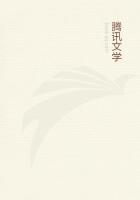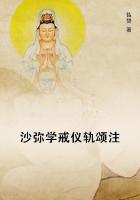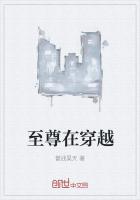I do not agree with much modern criticism, in greatly preferring the _Inferno_ to the two other parts of the Divine _Commedia_. Such preference belongs, I imagine, to our general Byronism of taste, and is like to be a transient feeling. Thc _Purgatorio_ and _Paradiso_, especially the former, one would almost say, is even more excellent than it. It is a noble thing that _Purgatorio_, "Mountain of Purification;" an emblem of the noblest conception of that age. If sin is so fatal, and Hell is and must be so rigorous, awful, yet in Repentance too is man purified; Repentance is the grand Christian act. It is beautiful how Dante works it out. The _tremolar dell' onde_, that "trembling" of the ocean-waves, under the first pure gleam of morning, dawning afar on the wandering Two, is as the type of an altered mood. Hope has now dawned; never-dying Hope, if in company still with heavy sorrow. The obscure sojourn of demons and reprobate is underfoot; a soft breathing of penitence mounts higher and higher, to the Throne of Mercy itself. "Pray for me," the denizens of that Mount of Pain all say to him. "Tell my Giovanna to pray for me," my daughter Giovanna;"I think her mother loves me no more!" They toil painfully up by that winding steep, "bent down like corbels of a building," some of them,--crushed together so "for the sin of pride;" yet nevertheless in years, in ages and aeons, they shall have reached the top, which is heaven's gate, and by Mercy shall have been admitted in. The joy too of all, when one has prevailed; the whole Mountain shakes with joy, and a psalm of praise rises, when one soul has perfected repentance and got its sin and misery left behind! I call all this a noble embodiment of a true noble thought.
But indeed the Three compartments mutually support one another, are indispensable to one another. The _Paradiso_, a kind of inarticulate music to me, is the redeeming side of the _Inferno_; the _Inferno_ without it were untrue. All three make up the true Unseen World, as figured in the Christianity of the Middle Ages; a thing forever memorable, forever true in the essence of it, to all men. It was perhaps delineated in no human soul with such depth of veracity as in this of Dante's; a man _sent_ to sing it, to keep it long memorable. Very notable with what brief simplicity he passes out of the every-day reality, into the Invisible one; and in the second or third stanza, we find ourselves in the World of Spirits; and dwell there, as among things palpable, indubitable! To Dante they _were_so; the real world, as it is called, and its facts, was but the threshold to an infinitely higher Fact of a World. At bottom, the one was as _preternatural_ as the other. Has not each man a soul? He will not only be a spirit, but is one. To the earnest Dante it is all one visible Fact;he believes it, sees it; is the Poet of it in virtue of that. Sincerity, Isay again, is the saving merit, now as always.
Dante's Hell, Purgatory, Paradise, are a symbol withal, an emblematic representation of his Belief about this Universe:--some Critic in a future age, like those Scandinavian ones the other day, who has ceased altogether to think as Dante did, may find this too all an "Allegory," perhaps an idle Allegory! It is a sublime embodiment, or sublimest, of the soul of Christianity. It expresses, as in huge world-wide architectural emblems, how the Christian Dante felt Good and Evil to be the two polar elements of this Creation, on which it all turns; that these two differ not by preferability of one to the other, but by incompatibility absolute and infinite; that the one is excellent and high as light and Heaven, the other hideous, black as Gehenna and the Pit of Hell! Everlasting Justice, yet with Penitence, with everlasting Pity,--all Christianism, as Dante and the Middle Ages had it, is emblemed here. Emblemed: and yet, as I urged the other day, with what entire truth of purpose; how unconscious of any embleming! Hell, Purgatory, Paradise: these things were not fashioned as emblems; was there, in our Modern European Mind, any thought at all of their being emblems! Were they not indubitable awful facts; the whole heart of man taking them for practically true, all Nature everywhere confirming them? So is it always in these things. Men do not believe an Allegory. The future Critic, whatever his new thought may be, who considers this of Dante to have been all got up as an Allegory, will commit one sore mistake!--Pagani** we recognized as a veracious expression of the earnest awe-struck feeling of man towards the Universe; veracious, true once, and still not without worth for us. But mark here the difference of Pagani** and Christianism; one great difference. Pagani** emblemed chiefly the Operations of Nature; the destinies, efforts, combinations, vicissitudes of things and men in this world; Christianism emblemed the Law of Human Duty, the Moral Law of Man. One was for the sensuous nature: a rude helpless utterance of the first Thought of men,--the chief recognized virtue, Courage, Superiority to Fear. The other was not for the sensuous nature, but for the moral. What a progress is here, if in that one respect only!--And so in this Dante, as we said, had ten silent centuries, in a very strange way, found a voice. The _Divina Commedia_ is of Dante's writing;yet in truth it belongs to ten Christian centuries, only the finishing of it is Dante's. So always. The craftsman there, the smith with that metal of his, with these tools, with these cunning methods,--how little of all he does is properly _his_ work! All past inventive men work there with him;--as indeed with all of us, in all things. Dante is the spokesman of the Middle Ages; the Thought they lived by stands here, in everlasting music. These sublime ideas of his, terrible and beautiful, are the fruit of the Christian Meditation of all the good men who had gone before him.
Precious they; but also is not he precious? Much, had not he spoken, would have been dumb; not dead, yet living voiceless.















